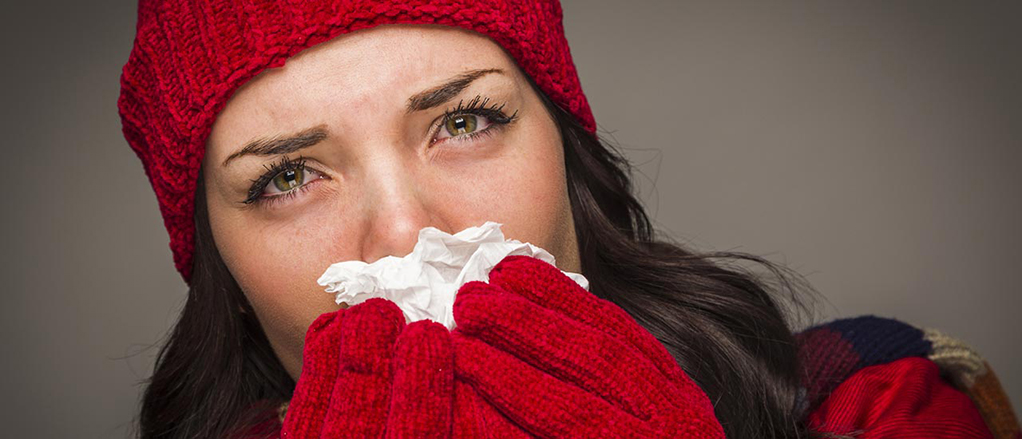Prevention is Key: Tips & Tricks for Staying Healthy During Cough and Cold Season
Cold and flu season is upon us. As a physician, an important part of my job is helping patients get well and stay healthy. Another important job I have though is making sure myself, my staff and my clinic stay healthy by preventing the spread of germs in an environment frequented by sick people. One way to stay healthy is through prevention. Whether it is at home, work, or school, there is plenty of ways to prevent yourself or your friends and family from getting sick. You may already know a few ways to avoid getting sick; hand washing, getting enough sleep, hydration—but there are others you may not have thought of. When’s the last time you disinfected your smartphone, for example? Below are some tips to keep your immune system strong.
Rethink that extra drink.
You don’t have to skip that glass of wine with dinner, but think twice before finishing the whole bottle. According to the National Institute of Alcohol Abuse and Alcoholism, studies have shown that excessive alcohol suppresses the immune system by reducing your body’s ability to fight bacteria. For this reason, it is best to stick to a maximum of 2-3 alcoholic drinks a day. Alcohol is also dehydrating and can disrupt your sleep, which are two more ways to lower your immune defences. Dehydration also prevents the body from maintaining the natural moisture within the mouth and airways. If that moisture barrier breaks down, bacteria just has another way to get in to your system.
Steer clear of sugar.
Resist reaching for that soda, or cookie or candy bar- especially during cold and flu season. Similar to alcohol, sugar slows your body’s defences from destroying bacteria and viruses. Women should aim for 6 teaspoons or fewer a day, and 9 teaspoons or fewer for men. For reference, a 12-ounce can of soda contains about 10 teaspoons of sugar.
Get vaccinated already.
It’s not possible to predict what an annual flu season will look like. While flu season occurs annually, the timing, severity, and length varies each year. Since the virus changes and mutates so quickly, you need to be vaccinated every year. Last years vaccine will not fight off this year’s viruses. Also, getting the flu shot not only protects yourself, but all your loved ones as well. If you get sick, someone you love that is less healthy will likely get sick and could die from complications. So don’t hesitate and get your flu shot when it becomes available!
Wash everything you touch.
How often do you clean your phones, microwave, keyboard, doorknobs, light switches, bed rails, remote controls, and children’s toys? Not often enough, likely. Use soap and water or alcohol-based disinfecting wipes during your regular cleaning—even more often during cold and flu season—to stop the spread of germs on these high-touch surfaces.
When was the last time that you washed your washing machine? Bacteria love warm, dark, and moist places, so your washing machine could harbour germs, especially over time. Put two tablespoons of white vinegar where the detergent usually goes, and run the “clean” cycle. This will eliminate some of the bacteria inside of the machine.
Don’t even think about biting your nails.
Your fingers are covered in germs that can infect simple areas, like your eyes, nose, and throat. Germs build up underneath your nails, and biting them is a surefire way to let bacteria into your body.
Hold your breath
Most germs enter your body through your nose or mouth. If you’re around someone who is sick, or next to someone who sneezes, avoid taking big inhalations. A recent study released from MIT revealed that coughs and sneezes—and their potentially infectious droplets—travel much farther distances than previously thought. A good rule of thumb: If you see or hear someone sneeze nearby, hold your breath for 10 to 15 seconds or turn away.
Get some fresh air even when it’s freezing out.
Getting some fresh air is one of the oldest pieces of health advice. One of the reasons we get sick when it’s colder is because we’re sharing more recycled air. Opening a window or, better yet, walking out your front door (just be sure to bundle up) can help prevent you from getting sick. Bundling up in cold weather is also important because being exposed to cold for long periods of time slows down your body’s immune system. Also invest in an air purifier. There are some filter-less models on the market designed specifically to remove or inactivate bacteria and viruses.


